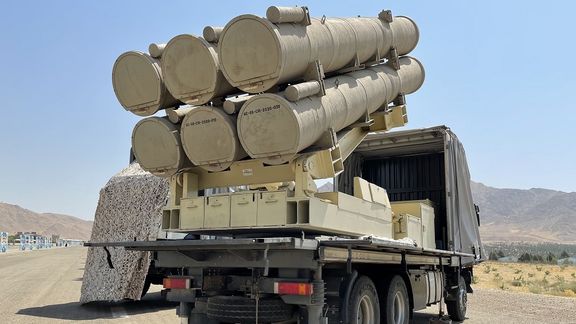Is Iran trading missiles for Russian cereals and wheat?

A member of the Iranian Parliament's National Security and Foreign Policy Commission claims that the Islamic Republic is bartering its missiles and drones in exchange for Russian soy and wheat.

A member of the Iranian Parliament's National Security and Foreign Policy Commission claims that the Islamic Republic is bartering its missiles and drones in exchange for Russian soy and wheat.
These remarks come amid recent denials by Iranian officials and the Ministry of Foreign Affairs regarding reports about the delivery of ballistic missiles to Russia.
The lawmaker, Ahmad Bakhshaei Ardestani, has stated clearly, "We provide missiles to Hezbollah, Hamas, and Iraqi Hashd al-Shaabi, so why shouldn't we provide them to Russia?"
According to this parliamentarian, in order to meet its needs, including importing soy and wheat, Iran must engage in bartering; one part of this barter involves sending missiles, while the other part includes sending drones to Russia.
Bakhshaei Ardestani's claim about bartering drones and missiles for Russian wheat and soy comes despite official customs statistics and the Iranian Chamber of Commerce indicating that Iran does not import soy from Russia.
Paying higher prices
Statistics from the Iranian Chamber of Commerce reveal that last year Iran imported nearly $2 billion worth of soy, sourced from the Netherlands, the United Kingdom, Switzerland, Turkey, the UAE, and Oman, with no soy shipments coming from Russia.
However, Iran did purchase $595 million worth of wheat, along with $260 million worth of corn and $150 million worth of barley from Russia last year.
Details from the Chamber of Commerce show that Russia actually exports agricultural products to Iran at prices significantly higher than regional market rates. For example, last year Iran bought ordinary wheat for human consumption from Kazakhstan and Turkey at prices ranging from 31 to 37 cents per kilogram, while similar wheat imported from Russia cost between 43 and 47 cents per kilogram.
This higher price for Russian wheat is notable, considering that the Iranian government purchases domestic wheat for less than 30 cents per kilogram and delays payments to local farmers.
Previously, Ahmad Maroufkhani, the head of the Iranian Oil Exporters Association, stated that Russia sells gasoline to Iran at 20% higher than global prices. He announced last year that Iran pays $150 per ton of gasoline imported from Russia, which is 20% above the international price.
The high cost of Russian gasoline for Iran violates the European Union and seven industrialized nations’ price caps on Russian gasoline and diesel, forcing Russia to sell its oil products at lower prices in global markets.
This Iranian behavior of paying more for Russian commodities remains a mystery, unless one can argue that they might be hidden military and security deals between the two.
Trade Turnover
Iranian customs statistics show that last year Iran had $1.7 billion in imports from Russia, which is unchanged from 2021, prior to Russia's military invasion of Ukraine. However, compared to the period of U.S. sanctions against Iran in 2018, this figure represents a 60% increase. Iranian exports to Russia have seen little growth from the execution of U.S. sanctions until 2021, but since 2022, they it nearly doubled, reaching $950 million last year. These statistics do not include trade in petroleum products and weapons.
A significant portion of Iran's exports to Russia consists of fruits and vegetables, while a considerable part of its imports includes grains, industrial machinery, wood, and cooking oil.
Since 2022, following Western sanctions on Russia for its invasion of Ukraine, Russian customs have ceased publishing details of trade with foreign countries. However, both Iranian and Russian officials report bilateral trade totaling $5 billion. If accurate, this figure suggests that either half of the trade between the two countries is not recorded by customs or involves items such as oil products and weapons not covered by Iranian customs statistics.